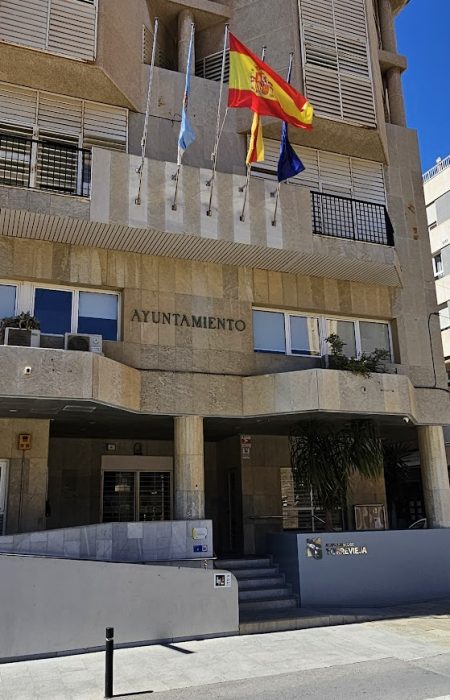Ryanair, the largest passenger airline in Spain, will announce a nearly one million seat decrease at Spanish regional airports next Wednesday, September 3rd. The decision was made in retribution for an increase in airport taxes announced by airport operator Aena a few weeks before.
Eddie Wilson, the airline’s CEO, has criticised the Spanish government’s “indifference” in allowing regional facilities to “deteriorate and become underutilised.” “We will invest where we can get a return,” he informed Europa Press. Ryanair is so urging Spain to overhaul the management of Aena, which is 51% state-owned, and to increase the competitiveness of smaller airports.
Ryanair calls airport operator Aena’s announcement that it will raise fees by 6.5% by 2026, to €11.03 per person, “unjustified and damaging,” since it is “the highest level in a decade,” despite Aena’s record profits and passenger numbers.
Given this situation, Ryanair’s CEO has indicated that the business will announce significant seat reductions at Spanish provincial airports next week during the summer. The affected airports and specific quantity of seats will be announced during the CEO’s news conference in Madrid next Wednesday.
Regional airports are less competitive
Several weeks ago, Wilson stated that the cuts would be “quite severe” and “very drastic.” In his perspective, the crux of the problem is Spain’s smaller airports’ lack of competitiveness, with many of them being 70% underutilised or nearly empty. “If the airports are empty, that suggests the pricing is poor. “It’s that simple,” he says. Ryanair claims that Aena’s pricing structure for these facilities “has broken and failed” and will continue to harm the regional Spanish economy.
Ryanair’s CEO accuses Aena of being “a monopoly that exercises its power by raising prices,” whereas in other parts of Europe, such as Italy, Sweden, and Hungary, airports and regions are cutting access charges to become more competitive and attract traffic. “If we, Europe’s lowest-cost airline, can’t make them work, no one can,” Wilson emphasises.
Ryanair has expressed “deep frustration” with the Spanish government, accusing it of “indifference” to the issue and neglecting the regional airport infrastructure. Wilson told Europa Press that, despite being Spain’s largest airline with billions of euros invested in the country, he has not received a response from the Minister of Transport to his frequent requests.
Wilson argues that the implications of this program will be felt by inhabitants in “Empty Spain,” who will lose frequent, low-cost access. “This will translate into fewer passengers, fewer jobs, fewer connections, and fewer opportunities for tourism,” according to him.
According to Wilson, Aena’s decision not to incentivise airlines to use underutilised capacity at its regional airports is the reason Ryanair is forced to relocate aircraft and capacity to more competitive European markets, such as Italy, Sweden, Croatia, Hungary, and Morocco, where governments actively promote growth.
“The capacity that is being withdrawn from Spanish regional airports will not remain in Spain, but will be allocated to other, more competitive countries or regions,” the chief executive stated, claiming that “many European countries are interested in our investments.”
The reduction in operations at small facilities adds to the capacity reductions at seven Spanish airports that occurred earlier this summer, despite the fact that traffic increased by 2% in Spain. Ryanair dropped its capacity by 18% this summer, losing 800,000 seats and 12 flights as a result of “excessive charges and the ineffectiveness of Aena’s incentive plans,” which it believes are “completely ineffective in supporting the government’s policy of growth at regional airports.”
Ryanair has suspended operations in Jerez and Valladolid, removed an aircraft located in Santiago (an investment of $100 million), and cut traffic in five other regional airports: Vigo (-61%), Santiago (-28%), Zaragoza (-20%), Asturias (-11%), and Santander (-5%).
Ryanair has asked the autonomous communities to handle the least profitable airports
Next winter, Irish low-cost carriers will expand to major airports such as Madrid, Barcelona, Malaga, and the Balearic and Canary Islands. “Without urgent action, Spain risks losing more capacity and investment to more competitive markets, leaving regional airports half-empty while Spain’s competitors thrive,” according to Wilson.
In his opinion, the problem is twofold: big airports are approaching capacity limits, and regional facilities are underutilised. Ryanair suggests that the operation of the least profitable airports be given to autonomous communities. “We don’t care who manages the airports, as long as they are competitive,” he told me.
At this time, he recalls that “it’s the airlines that carry passengers, not the airports.” “If they were hotels, with that occupancy, they’d be closed,” adds Wilson, who advises that Aena sell them so others might benefit from them. “It could be that way, as we’ve seen in other parts of Europe, but they’re monopolists. We’re fed up with hearing their justifications. They have infrastructure that isn’t in use, but they don’t want anyone to use it,” he laments.
Aena is now completing the draughting of the Airport Regulation Document 2027-31 (Dora III), which includes investments to extend and modernise many airports. Wilson recognises the need for more capacity in Madrid, Barcelona, Malaga, and the Balearic and Canary Islands, but emphasises the importance of “efficient expansion.” However, Wilson cautions that these investments “are paid for with airline money through taxes that apply for 25 years, not with Aena’s money.”
Wilson called the government’s penalties imposed on five airlines for baggage charges (€108 million for Ryanair) “populist” and expects Brussels will eventually begin a case against Spain: “It’s interference in pricing.” Ryanair stated that the ball is now “in the court of the Spanish government,” which must decide whether to let the “terminal decline” of its regional airport infrastructure or take action to rectify the situation.









No Comment! Be the first one.